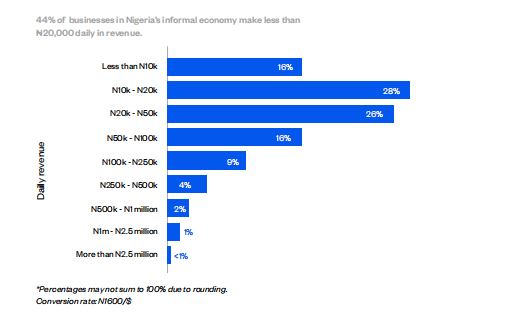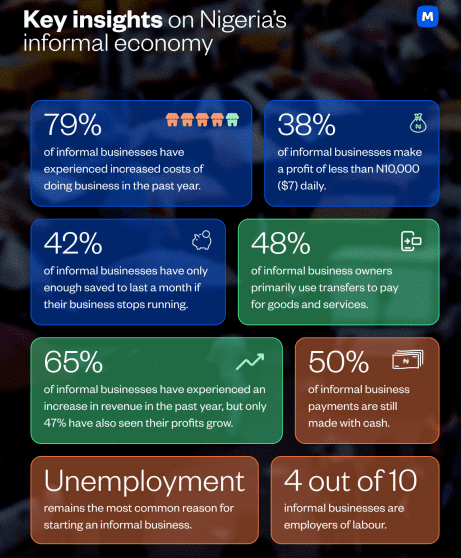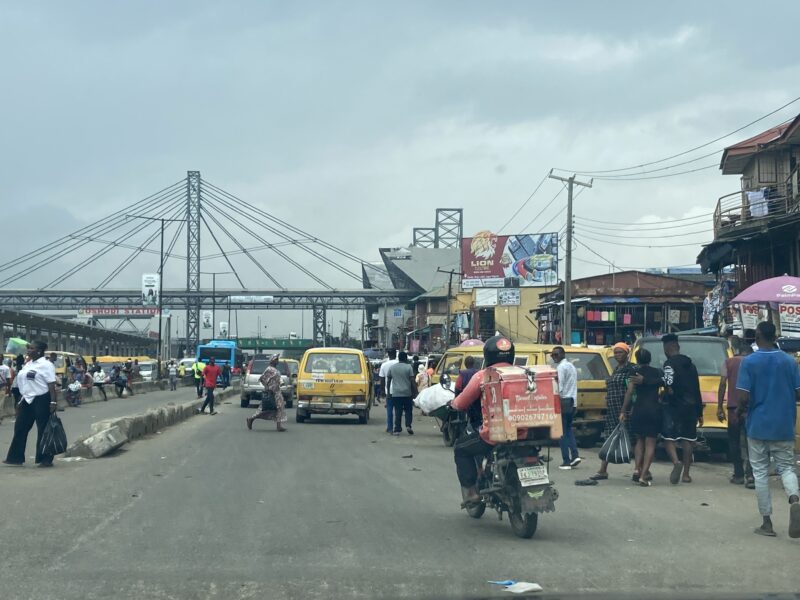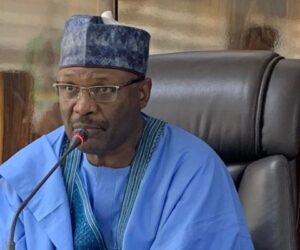79% of informal businesses have experienced increased costs of doing business over the past year. This is according to the 2025 Informal Economy Report by Moniepoint. It also indicates that 38% of informal businesses make a profit of less than ₦10,000 daily.
That figure, roughly $7, represents the reality for traders, artisans and small-scale service providers across the country. These earnings are often barely enough to cover operating costs, much less household expenses or business expansion.
Many informal entrepreneurs work daily, without financial buffers or savings.
The informal economy remains Nigeria’s largest source of employment and daily economic activity. It contributes more than half of the national output, employs the majority of the working population and runs on fast cash and everyday transactions. Yet the new data shows that the people keeping this economy alive are struggling to keep their heads above water.
That fragility is clearly visible in their financial resilience. The report shows that 42% of informal businesses have only enough savings or cash flow to last a month if their business stops running.
In other words, nearly half of Nigeria’s informal economy could collapse after just a few weeks of disruption.

There has been some movement on the revenue side. 65% of informal businesses recorded an increase in revenue over the past year. But that story is less optimistic than it looks. Only 47% of those businesses witnessed an increase in profit.
For most, higher revenues mean higher costs, a reality that mirrors Nigeria’s broader inflationary trend.
This tension between growth and survival is also shaping how informal businesses handle payments. The report reveals that 50% of transactions in the informal economy are still made with cash, even as digital channels grow. 48% percent of business owners now primarily use transfers to pay for goods and services.
Unemployment remains the single biggest reason people enter the informal economy. With limited formal job opportunities and a weak labour market, millions of Nigerians turn to informal trade as their only viable option.
The report also notes that 4 out of 10 informal businesses are employers of labour, underscoring their crucial role in absorbing the country’s workforce at the grassroots level.


Behind these numbers are complex daily realities. Rising transport costs make it harder for traders to move goods. High fuel prices affect food vendors and small manufacturers. Fluctuating exchange rates affect the price of imported materials.
Levies and multiple informal taxes pile on top of already thin margins. And while some traders have turned to digital tools to make transactions more efficient, most still operate without safety nets or access to affordable credit.
The data reflects a system that is vast, vibrant and vulnerable. Informal businesses power Nigeria’s economy but do so with limited support and no real protection from economic shocks. Many lack formal registration, making it difficult to access financing, insurance or structured government support. In practical terms, when costs rise, traders absorb them directly, often at the expense of their personal income.
The Moniepoint report also highlights the structure of the sector. Retail and trade make up 44% of informal businesses, followed by other services at 33%, agriculture at 7% and arts, entertainment and recreation at 4%.
These are industries that touch millions of everyday transactions across cities and rural communities alike. They are also the most sensitive to inflation and supply disruptions, which explains why cost pressures hit so many businesses at once.
Read also: What is the cost of going cashless? How transaction charges affect Nigeria’s informal sector


The numbers show a sector at a crossroads. On paper, the informal economy looks resilient. It keeps people employed, feeds families and circulates cash in every part of the country. But beneath that surface is a fragile foundation built on inconsistent income, rising costs and little formal protection.
79% of businesses say costs are up, and more than a third earn less than ₦10,000 daily. Those figures are not just statistics. They are warnings.








